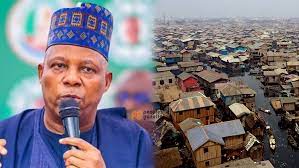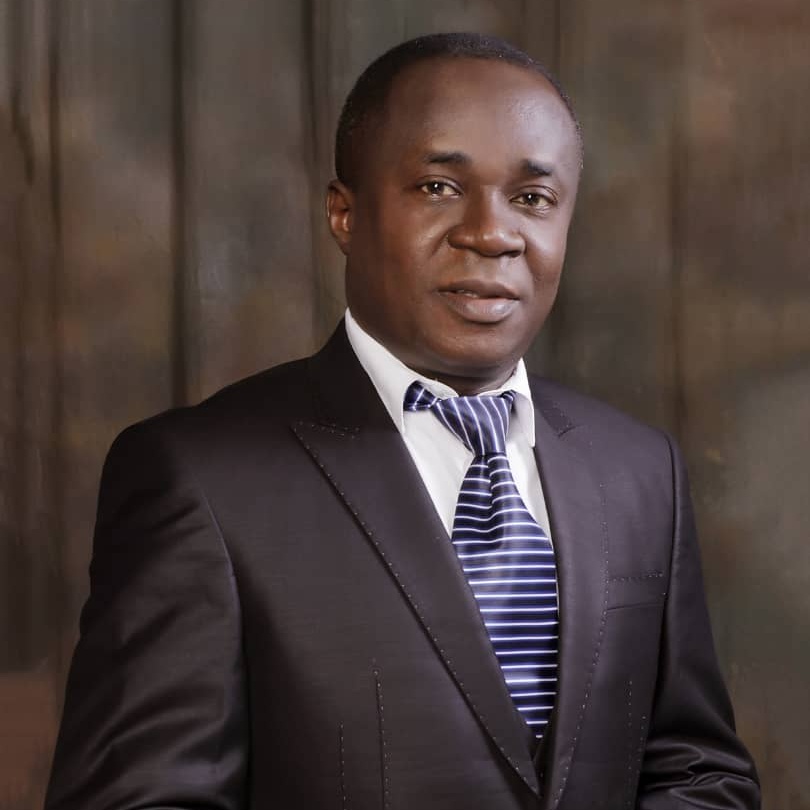For many Nigerians, access to decent and affordable housing remains a critical challenge. The housing challenge is made worse by the rise in rural-urban migration, which continues to stretch the limited public infrastructure in urban centres.
Currently, more than 28 million Nigerians lack access to decent and affordable housing. Recently, the Vice President Kashim Shettima lamented that despite efforts being made by governments at different levels to address the nation’s housing deficit, a lot needs to be done more.
According to Shettima, the country’s housing deficit requires N21 trillion to be effectively bridged. Shettima spoke in Sokoto at the groundbreaking ceremony of the construction of a 500-unit housing estate to be constructed by the Governor Ahmed Aliyu-led administration.
“Nigeria has a deficit of 28 million houses and we will need N21 trn to meet our housing needs,” he said. “This step taken by the Governor is highly commendable and worthy of emulation by other states’ governments.”
Of course, Nigeria’s housing problems are not new. The housing deficit has grown progressively from seven million housing units in 1991 to 12 million in 2007, 14 million in 2010 and subsequently 28 million housing units in 2022.
The combination of a growing urban population, lack of an efficient mortgage system, poverty, increasing construction costs, high inflation and declining household income, have made access to decent and affordable housing difficult for many Nigerians.
In 2019, the Central Bank of Nigeria, said only 10% of Nigerians who desire to own a home can afford it. When compared to 72% in the United States and 78% in the United Kingdom, the estimate is largely inadequate for the size of our economy.
Despite the enormity of the housing challenge, there is a lot that suggests Nigeria can turn the tide around, close the housing deficit and steadily provide for the country’s needs. The Federal Mortgage Bank of Nigeria (FMBN) estimates that N21 trillion will be required to close the housing gap.
This suggests that the government cannot address the challenge alone and, therefore, collaboration between the government and private sector players is needed.
More than at any other time in the country’s history, federal and state governments must collaborate and enable the private sector to invest in the housing sector.
At least, two factors justify the need for private sector participation at this time; the first one is that only the private sector can mobilise the level of funding that isc required to meet the deficit, the other one is that only the private sector can commit the capital required over a long term.
In addition to the private sector-led investment, the government can also collaborate with the private sector to provide low-cost housing schemes that can accommodate a larger segment of the economy, especially those in the formal sector.
To boost private sector participation, the Tinubu-led administration should provide an enabling environment through incentives such as tax concessions and eliminate bureaucratic bottlenecks in the land administration system.
Mortgage reform and an efficient credit system are equally required to maximise investment in the sector. The dwindling household incomes and low purchasing power of families as a result of inflation means not many Nigerians can afford a house.
It is noteworthy that in other climes, homeownership is often acquired under a mortgage system that does exert a strain on the finances of individuals.
Thankfully, Governor Ahmed Aliyu said that the 500-unit housing estate would be allocated to civil servants, who are mostly affected by harsh economic conditions based on an owner-occupier basis.
“This is a project that was initiated by the former governor of the state, Aliyu Magatakarda Wamakko, but it was later abandoned by the immediate past administration,” the governor said. “But we are determined to complete it for the benefit of our workers and the general public.”
The governor said the project, located at Wamakko Local Government Area, would cost the state government N7.3 billion to complete.
In the short run, the government should address the high level of inflation, which has led to a proportionate increase in the cost of construction materials. After all, there is no doubt that the housing sector is also affected by the general health of the economy. These, among other vital reforms, the Tinubu-led administration should undertake with a view to closing the housing gap in Nigeria.
On First Lady’s N500 million resettlement package for families in Plateau…
In Nigeria, Boko Haram and other non-state armed groups as well as clashes between herders and farmers have pushed more than three million Nigerians out of their homes, especially in parts of North-east Nigeria and North-central parts.
Thus, in a rare show of love and empathy, the First Lady Senator Oluremi Tinubu disbursed N500 million and some relief and resettlement packages to families displaced by communal clashes and conflicts in six local government areas of Plateau state.
A total of 500 families drawn from Mangu, Riyom, Barkin Lado, Bassa, Bokos and Jos South local government areas got N1 million each to enable them return to their communities and rebuild their homes.
Speaking at the event, the First Lady urged the communities to live in peace and harmony to guarantee sustainable growth and progress.
She said it is by living in peace and love that the great potentials of the nation would be actualised.
“I urge all Nigerians to embrace dialogue, tolerance and understanding,” she said, “as we work together to build a more harmonious society. Let us remember that our diversity is our strength and, together, we can overcome the challenges that threaten our unity.”
Of course, the importance of peace to a country can never be over-emphasised as it touches all sectors ranging from businesses and farming, and government cannot provide social amenities if projected areas are not in peace. Peace paves way for speedy development and mutual living. In fact, it is true that citizens enjoy more when they are in peace than during wars.
However, as Nigeria lurches from one violent conflict to another, the country’s leaders and its international supporters become easily fixated on the manifestations of insecurity in the country and their aftermaths.
The larger problem, however, is that none of this will ever change unless the focus turns more firmly and consistently to the thread that runs through all of the upheavals and that thread is the failures of governance.
Nigeria’s shortcomings in making government accountable to its citizens form an urgent issue not only for the country, but for the Africa.
Nigeria’s population is projected to be around 300 million by 2050 and, therefore, it will be impossible for this and future governments in the country to advance Nigeria’s strategic objectives of stability and prosperity in sub-Saharan Africa without a peaceful, democratic and economically thriving Nigeria.
Throughout the current democratic experiment in Nigeria, the country has experienced widespread violence, and the repeated inadequate responses by governments have disillusioned the citizens.
Therefore, Nigerian leaders need to reinvigorate and sustain a focus on getting governance right. That means ensuring better mechanisms of accountability for top officials and reducing corruption and other abuses that fuel violence.
The Tinubu-led administration should, essentially, take the initiative to tackle the structural problems at the root of Nigeria’s violence. Failure will only increase internal instability that will radiate across Nigeria’s states and threaten general security.
Already, more than three million Nigerians, a population as large as the nation of Gambia, are internally displaced by the activities of violent non-state actors.
In the end, it is ultimately up to Nigerians to address these issues of accountability and governance as many Nigerians want to see.
Of course, it is heartwarming to hear the First Lady say to the families displaced by violence thus: “I want you to know that you are not alone in this journey to recovery. We, stand with you and extend our hands in solidarity, offering not only financial support but also our prayers as you return to your homes and communities in safety and peace.”




